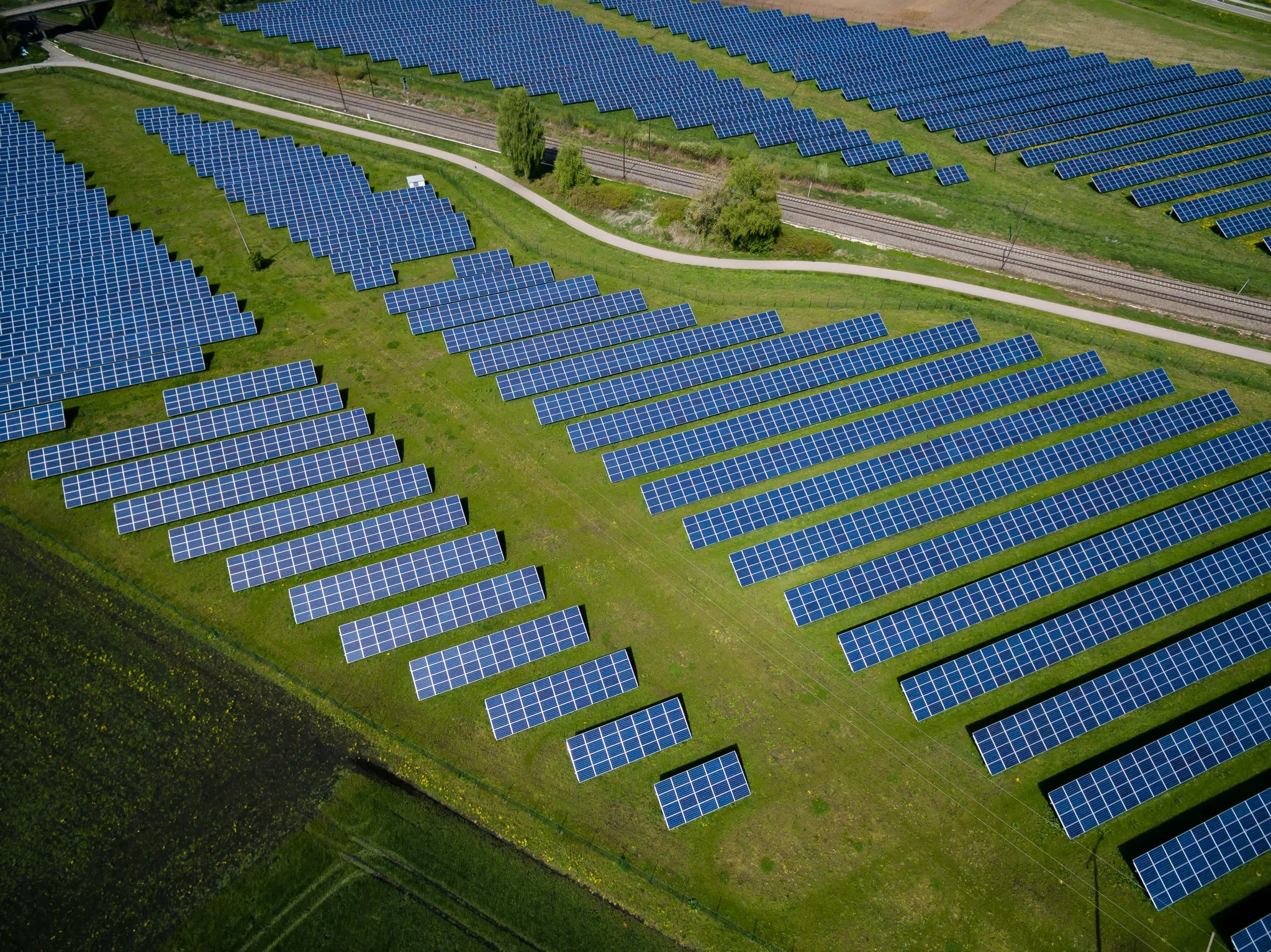Drop off your CV
We'd love to hear from you. Send us your CV and one of our specialist consultants will be in touch.
Leading Energy Producer: Texas is the largest energy producer in the U.S., with a significant contribution from renewable sources. In 2022, Texas generated approximately 15% of the country's electricity from all renewable sources.
Wind Power Dominance: Texas leads the nation in wind energy production, benefiting from its vast open spaces and favorable wind conditions. As of 2023, it had over 30 gigawatts (GW) of installed wind capacity, enough to power more than 7 million homes.
Growing Solar Capacity: The state is the second-largest producer of solar energy in the U.S., with over 10 GW of installed solar capacity by 2023, thanks to its high solar irradiance and a surge in utility-scale solar projects.
Strong Infrastructure: Texas has established extensive transmission lines (Competitive Renewable Energy Zones) that efficiently deliver wind-generated electricity from remote areas to major urban centers, facilitating the growth of renewables.

Economic Incentives: A deregulated energy market and federal subsidies have created competitive economic incentives for renewable energy projects, encouraging investment and development across the state.
Job Creation: The renewable energy sector is a significant driver of job creation, with the wind industry alone employing approximately 25,000 people in Texas, providing vital economic boosts, especially in rural areas.
Investment and Revenue Growth: The growth of renewable energy has attracted substantial investments, with billions invested in wind and solar projects, which benefit local economies and generate increased tax revenues for communities.

Water Conservation: Renewable energy sources like wind and solar require minimal water for operation compared to traditional power plants, helping conserve valuable water resources in a state prone to droughts.
Political Support: Despite political challenges, the renewable energy sector in Texas has become politically resilient, gaining support from urban Democrats for its clean energy benefits and rural Republicans for its economic development potential.

Here are some examples of the diverse range of senior roles within the industry:
Electrical Systems Knowledge: Proficiency in diagnosing, testing, and repairing electrical components, including control cabinets, substations, and fiber optic systems.
Mechanical and Hydraulic Systems Expertise: Strong understanding of mechanical and hydraulic systems for maintaining, troubleshooting, and replacing turbine parts, such as gears, bearings, and hydraulic pumps.
Data Analysis and Diagnostics: Skill in using diagnostic software and tools to collect, interpret, and troubleshoot turbine performance data, contributing to proactive maintenance and efficiency improvements.
Technical Maintenance and Repair: Ability to perform detailed inspections, routine maintenance, and repairs on complex turbine components, particularly in the nacelle, hub, and rotor areas.
Computer and Software Proficiency: Competence in using computer-based systems to monitor, manage turbine functions, and run diagnostics to identify operational issues.
Risk Management and Assessment: Proficiency in identifying, analyzing, and managing project risks, including financial, commercial, and operational, to ensure project safety and compliance.
Cost Control and Budgeting: Expertise in developing, monitoring, and maintaining budgets and forecasts and implementing cost control measures to keep the project within financial constraints.
Regulatory Compliance and QHSE Standards: In-depth knowledge of RQHSE (Risk, Quality, Health, Safety, and Environment) standards and regulations to ensure compliance on all offshore operations and activities.
Project Planning and Execution Strategy: Skills in detailed project planning, including resource allocation, scheduling, and coordination, ensuring efficient project execution and milestone achievement.
Technical Documentation and Quality Control: Ability to manage full project documentation, control document accuracy, and oversee quality assurance (QA) and quality control (QC) processes to meet project specifications.
Exploration Strategy and Planning: Expertise in developing and implementing comprehensive exploration strategies, plans, and budgets aligned with the company's strategic goals.
Geological Interpretation and Resource Estimation: Proficiency in geological analysis, mineral resource estimation, and reporting standards, including NI 43-101 and feasibility studies, especially in precious and base metals environments.
Technical Leadership and Best Practices: Ability to provide technical oversight, develop exploration protocols, and maintain best-practice standards for exploration systems and QA/QC processes.
Data Management and Analysis: Competency in managing data for exploration projects, utilizing software tools like Datashed and LogChief to oversee drilling, sampling, and data integration processes.
Regulatory and Compliance Management: Familiarity with legal and regulatory requirements, ensuring all exploration activities and reporting meet industry standards and maintain title compliance.
While the industry is booming, recruitment challenges remain within the sector. Here are some key examples:
Skills Gap: The renewable energy sector faces a significant skills gap, with millions of workers needed in various roles, including technical engineering, project management, and white-collar positions.
Exodus of Talent to Fossil Fuels: Rising fossil fuel prices are causing a skills exodus, with a substantial percentage of renewable energy workers shifting to oil and gas due to higher profits and better compensation.
Narrow Talent Pools: Many renewable energy companies limit their talent searches to individuals with specific experience in the renewable sector, excluding potentially qualified candidates from allied industries like oil and gas, engineering, and finance.
Lack of Training Resources: Companies often lack the infrastructure and resources to train and upskill candidates outside the renewable sector, reducing their available talent pool.
Power Imbalance in Hiring: Candidates have significant power in the recruitment process due to the high number of vacancies compared to the available talent, allowing them to negotiate for better compensation and benefits.
Gender Gap: The energy sector struggles with gender disparities, particularly in leadership roles. This gap affects the attraction and retention of female talent, limiting diversity within the workforce.
To ensure the industry continues to thrive with the senior talent it requires, here are our top recruitment tips:
Companies need to establish robust training and upskilling initiatives to help new hires transition from other sectors into renewable energy roles. This may include mentorship programs, online courses, and hands-on training to equip candidates with the specific knowledge and skills required for their new positions. Developing clear pathways for advancement within the company can also motivate existing employees to enhance their skills.
Collaborating with educational institutions is crucial for building a future talent pipeline. Companies can create internships, apprenticeships, and outreach programs that engage students and young professionals interested in sustainability. By showcasing career opportunities and the impact of their work, firms can inspire the next generation to pursue careers in the renewable energy sector.
A compelling EVP that articulates the company's mission, environmental goals, and societal contributions can significantly enhance recruitment efforts. Companies should provide concrete examples of how their work addresses climate change and supports sustainability initiatives, attracting candidates who share these values and wish to contribute to meaningful work.
This includes skills such as:
Talent with these skills could be transferred from industries such as:
This includes skills such as:
Talent with these skills could be transferred from industries such as:
This includes skills such as:
Talent with these skills could be transferred from industries such as:
This includes skills such as:
Talent with these skills could be transferred from industries such as:
Whether you're navigating hiring challenges or have expertise to feature, we want to hear from you. Reach out to us below to share your insights, or discuss how we can support your success in the thriving energy sector.